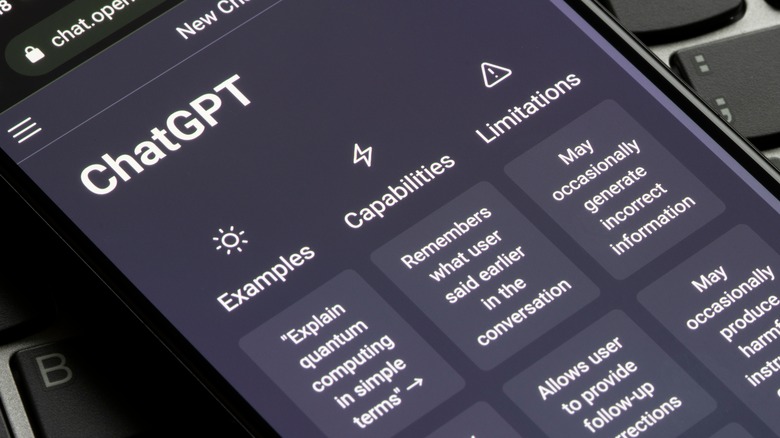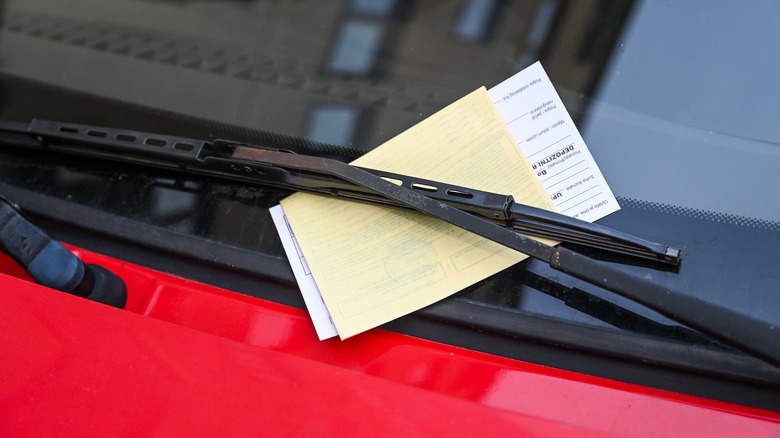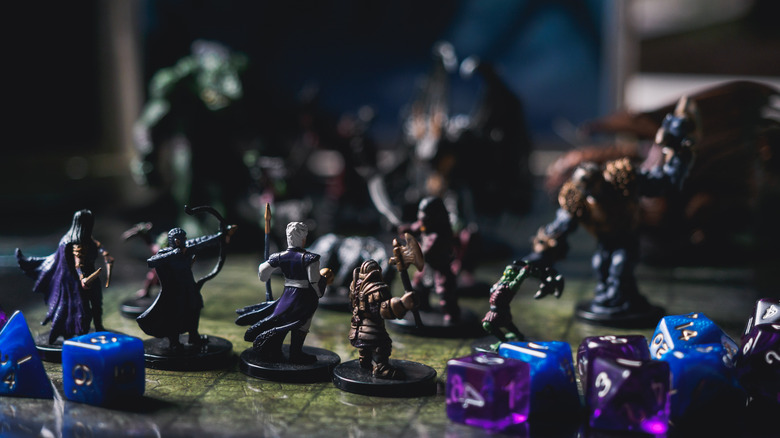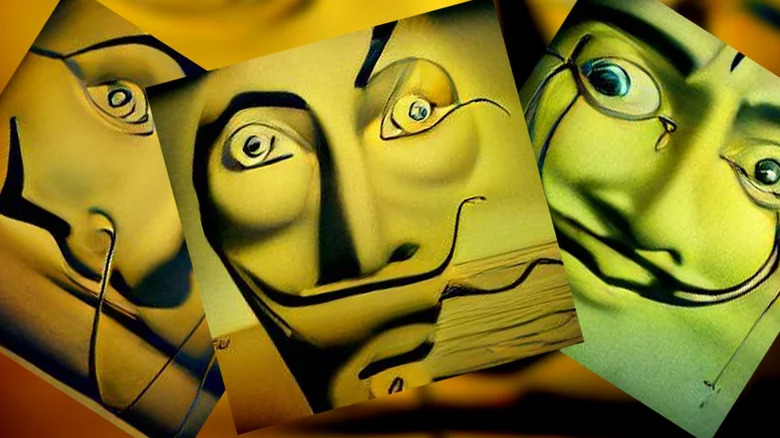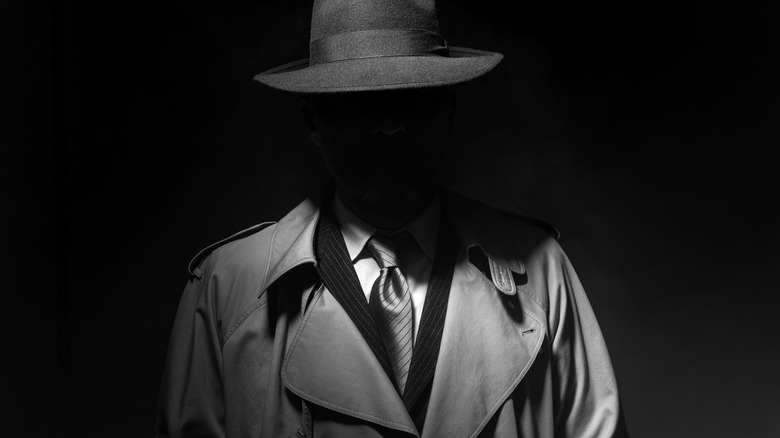5 Ways You Probably Didn't Realize You Could Use ChatGPT
ChatGPT has dominated headlines since it was released a few months ago. The stories have gone one of two ways, either the AI is a useful tool that could enhance everyone's lives — or it is one of the first steps down a dark path that ends in the obsolescence of humanity. Whether it creates a utopian society where people are free from menial tasks or a Terminator-like situation where we're all scrabbling around in the ruins of civilization remains to be seen, but for now it's firmly in the "quite useful" category.
It's also not without its problems. The program is prone to inaccuracy, and everything it produces should be taken with a grain of salt. Also, while some uses for DhatGPT dip into the "legal advice" and "medical advice" categories, it should be noted that as impressive as ChatGPT looks, it isn't a doctor, lawyer, therapist, or financial adviser. If you have a serious issue to tackle, qualified humans are still your best option. Still, here is a look at some of the amazing, and slightly obscure, things OpenAI's ChatGPT can currently do.
If you need help getting out of a parking ticket, try ChatGPT
If you have actual legal troubles, go to a lawyer. If it's something minor like a parking ticket, ChatGPT could actually help you get out of it. One British student did just that when she landed a £60 ($74.30) penalty for parking near the accommodation she was renting. Millie Houlton, who attends York University, had received a letter telling her not to park in her usual spot due to road works. She instead chose to park around the back, where she received the ticket.
$75 isn't really enough to justify paying a legal professional to help out, so using ChatGPT to quickly write a professional-sounding appeal makes sense. Houlton prompted the bot with details of the incident, highlighting the fact she'd paid for a parking permit for two years and the road markings she had allegedly parked on were faded and hard to spot. ChatGPT issued the letter, and the student just needed to add a few personal details before sending it off. The plan worked, and the fine was overturned. So while serious legal matters are best left to a lawyer, ChatGPT is ideal if you are dealing with a minor incident and need something that looks professionally written.
You can roleplay to some degree
If you're a fan of Dungeons and Dragons or just want to try out a truly open roleplay, then ChatGPT might be just what you need. Your initial prompt is very important if you want to do this correctly. At a basic level, you could just tell ChatGPT that you would like to roleplay and outline a scenario. It's also possible to go much further than that.
One Reddit user has written a prompt that gets the AI to run a roleplay based on the Generic Universal RolePlaying System (GURPS). Like many tabletop RPGs, the player can choose an action, and their success is based upon a combination of their stats and a random dice roll. You can also easily tweak this prompt by changing out words like "random setting" and "tell me what character I'm playing" with specific locations and descriptions. Roleplaying on ChatGPT has its pros and cons. When it works, it is truly open-ended. If your character has been confronted by bandits and you want to respond by picking your nose and flicking it at the leader, you can roll the dice on that one. On the downside, ChatGPT has a limited memory — so don't expect it to recall an adventure you had early on in the story if you're a few thousand words deep. Equally, it will occasionally take an action for your character, or say a line for you. You can remind it not to do this if you wish.
ChatGPT can help you use other AI programs
When dealing with modern AI programs, the outcome you get often depends on the quality of the prompt you put in. It's so important, companies are already offering outlandish salaries for "AI Prompt Engineers." Prompting can be even more important when using generative AI to create images. The right string of words can be the difference between the exact image you were picturing in your mind and an unrecognizable, mutated, blur with too many fingers and a face from a Lovecraft novel.
Luckily, you don't have to prompt on a professional level to get good results. ChatGPT is there to help you. The catch is, there's a trick to getting ChatGPT to churn out good quality prompts that you can then dump into Stable Diffusion, Dall-E, or Midjourney. As "Stable Diffusion Art" suggests, the best way to do things is to give ChatGPT an example of a "good" prompt and then ask for more examples.
"Good" prompts can be found on Reddit, or through a general Google search and tweaked to meet your needs. The benefit of using ChatGPT is, you can generate a bunch of prompts of equal quality very quickly. These can then be dumped into the image generator until one meets your needs. You can also get ChatGPT to alter the example prompt for you. Just tell it to use "X" character instead of the one in the prompt, or set it in a different location instead.
ChatGPT can help you create and flesh out characters
Contrary to what some reports say, you can't use ChatGPT to write a novel. Or you can't use it to write a decent novel at the very least. Yes, there have been reports of people writing short novels with the bot and slapping them up on Amazon, but those books really aren't very good. The AI has a limited amount of memory, so after around 3,000 words everything will start to unravel. On top of that, due to the way large language model AIs operate, anything you do get will be painfully cliche.
But that doesn't mean it can't help you write a novel. It's great for suggesting names, character types, and locations. Particularly with things like background characters. Rather than spending tons of time fleshing out these minor roles, you can have ChatGPT generate some and then just tweak the results to your liking.
ChatGPT's roleplaying ability is also useful to writers. If you're not sure about what should happen in a scene, you can put yourself in the character's shoes and then roleplay through a few scenarios with the chatbot. You may see useful ideas spring up, or rule out certain situations. All in all, ChatGPT is more of a tool than a magic wand in its current form. For many creatives' sake, hopefully, it stays that way.
ChatGPT could save your best friend's life
While OpenAI's chatbot shouldn't be your go-to for medical advice, there are situations when things get desperate. One Twitter user managed to use ChatGPT to diagnose and save his dog, Sassy, after veterinarians were left scratching their heads. "Cooper" had initially taken his pup to the vet and received treatment for a tick-borne disease. After initially responding to treatment, she took a turn for the worst and the vet's decision to keep monitoring the progressively worse symptoms wasn't enough for Cooper. He booked an appointment with another clinic, and in the meantime, entered the dog's blood test results and symptoms into GPT 4.
#GPT4 saved my dog's life.
After my dog got diagnosed with a tick-borne disease, the vet started her on the proper treatment, and despite a serious anemia, her condition seemed to be improving relatively well.
After a few days however, things took a turn for the worse 1/
— Cooper ☕ (@peakcooper) March 25, 2023
Two of the illnesses ChatGPT suggested were ruled out by other tests Sassy had received. That left just one, IMHA — which is a common complication of the tick-borne disease she was diagnosed with. When Cooper took Sassy to the next vet appointment, he asked if IMHA could be the cause of the dog's illness. An extra set of tests showed that GPT 4 got the diagnosis correct, and Sassy was put on the correct course of treatment. It's worth noting that GPT 3.5, ChatGPT's basic model, wasn't good enough to offer a correct diagnosis. But the company's most recent release, GPT4, contributed to saving the dog's life. It's also important to note that, as Cooper did, you should always get a second opinion from a medical professional if you're using ChatGPT for anything close to medical purposes. This includes using it to diagnose what's up with your pets.
